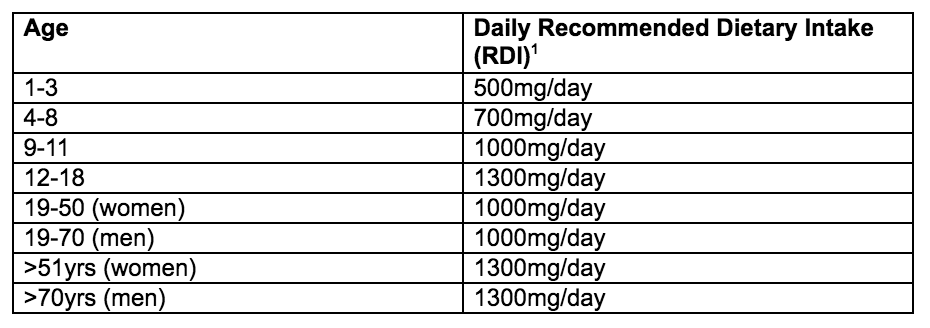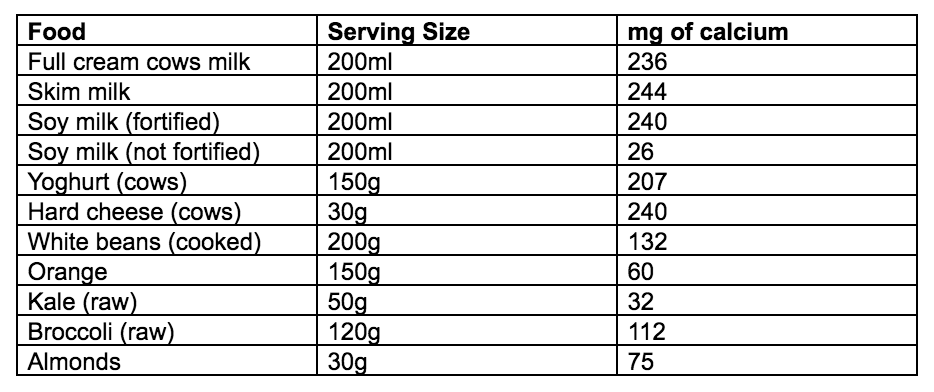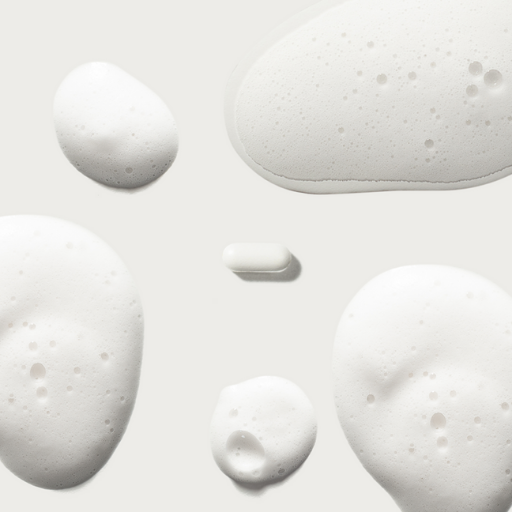Why you should eat more calcium-rich foods


Why you should eat more calcium-rich foods
Calcium is one of the most important minerals in the body and has many health benefits. Without it, we wouldn't be able to stand or eat like 99% of our calcium is in our bones and teeth (1). Your body does not store calcium therefore proper dietary intake is essential.
So here are our top tips to eat more calcium-rich foods and keep your bones healthy and strong.

Why is calcium important?
Calcium plays an important role in nerve conduction, keeping our heart beating and muscles moving (1). When we don’t get enough calcium from our diet, the body starts to leech it from the bones. This helps to supply the amount needed in the blood (1). Over time, this can lead to brittle bones and may result in a condition called osteoporosis.
How much calcium do you need?
Between birth and puberty, bones increase in size by seven times (1). Nearly 40% of our peak bone mass is achieved during puberty. This highlights the importance of calcium intake during this time (2).
In adulthood, calcium is essential for maintaining bone strength. As women move into menopause, bone loss becomes quite rapidly due to hormonal changes (1,3). This further accelerates in older adults as the body has a reduced ability to absorb it from the gut.
During this time, the body may lose calcium through the kidneys at a higher rate. As a result, the amount of calcium recommended increases with age (1). The recommended dietary intake of calcium is shown in the table below for different age groups and genders.

Factors influencing absorption
Calcium in different foods is absorbed in different rates depending on a variety of factors. This is referred to as its ‘bioavailability’.
Oxalic and Phytic Acid
When foods contain a large amount of oxalic and phytic acid, calcium may be compromised and is poorly absorbed by the body (1,4). This is a result of these food components binding to it, therefore reducing its absorption. This can occur when the calcium content of the food is high.
Foods containing oxalic acid include:
- Rhubarb
- Beans
- Spinach
Foods containing phytic acid include:
- Nuts and seeds
- Grains
- Some raw beans
- Soy isolates
Caffeine
High caffeine intake is linked with calcium loss from bones (5). This has a larger impact on older adults who already have low calcium levels. It is thus recommended to consume under 300mg of caffeine per day (5). This is equivalent to 450ml of brewed coffee, 1 litre of brewed tea or 6 cans of caffeinated soft drink (5).
Alcohol
Drinking large amounts of alcohol can reduce bone density and increase the risk of fractures (6). This may be due to alcohols effects on the body including the production of testosterone in men and causing irregular menstrual cycles in women (7). As a result, this can affect the production of osteoblasts, the cells that help bones form. It can also increase cortisol levels, a hormone that is known to affect the formation of bones and increase their breakdown (7).
Supplements
Supplements should be taken with food as the stomach acid produced whilst eating helps the body absorb calcium. Absorption from supplements is also best when they are taken at doses of 500mg or less (1).
Calcium-rich foods
Calcium is highest in milk and milk-based products but is also found in smaller amounts in bony fish, legumes, nuts, fortified plant milks, dark leafy greens and breakfast cereal (8). The table below shows the amount of calcium in foods.


How to get calcium without dairy
There are numerous reasons why some people avoid dairy. This may be related to a specific dietary pattern such as veganism, allergies or if you are lactose intolerant. If you can’t eat dairy products, it is important to choose appropriate alternatives. This may include choosing lactose-free dairy milk or plant-milk fortified with calcium that is at least 120mg per 100g and including additional foods rich in calcium.
Can you have too much calcium?
The upper amount of calcium you can have each day is 2500mg (1). This is equivalent to approximately eight glasses of milk. High intake has been linked with a higher risk of developing kidney stones as well as interfering with the absorption of nutrients such as iron and zinc (1).
6 tips to help you get calcium
It is important to choose foods that are rich sources of calcium each day. Here are 6 tips to help make sure you're getting enough calcium in your diet.
- Have snacks such as almonds, dried figs and apricots.
- When choosing plant-based milk, ensure to choose one with at least 120mg of calcium per 100ml. Brands including Vitasoy, Sanitarium and Califia farms all have plant-milk fortified to this amount.
- Add tofu to a stir-fry.
- Add dark leafy greens such as kale to soup or salad.
- Use yoghurt with breakfast cereals.
- Add canned sardines or cheese to a salad.

Are calcium supplements effective?
One of the best ways you can ensure you're reaching your daily calcium is through the diet. Choose foods such as dark leafy greens and quality dairy-based products as these are excellent sources of calcium.
Those with allergies, food preferences or higher requirements may sometimes find it difficult to meet the amount they need each day. If this is you, you may wish to consider supplementing with Vitable Calcium Plus.
In addition to a balanced diet, our uniquely designed calcium supplement is enriched with Vitamin D for better absorption and can help maintain healthy and strong bones for all stages of life.

Find out more about other areas that the above supplements can help you with:
Calcium | Fish Oil | Veg Omega | Vitamin D
*Always read the label. Follow the directions for use. If symptoms persist, talk to your health professional. Vitamin and/or mineral supplements should not replace a balanced diet.
References
- Nrv.gov.au. (2019). Calcium | Nutrient Reference Values. Published on: https://www.nrv.gov.au/nutrients/calcium.
- Osteoporosis Australia. (2019). Published on: https://osteoporosis.org.au/sites/default/files/files/Calcium%20Fact%20Sheet%202nd%20Edition.pdf
- Finkelstein, J., Brockwell, S., Mehta, V., Greendale, G., Sowers, M., Ettinger, B., Lo, J., Johnston, J., Cauley, J., Danielson, M. and Neer, R. (2008). Bone Mineral Density Changes during the Menopause Transition in a Multiethnic Cohort of Women. The Journal of Clinical Endocrinology & Metabolism, 93(3), pp.861-868.
- Osteoporosis Australia. (2019). Published on: https://osteoporosis.org.au/sites/default/files/files/Calcium%20Fact%20Sheet%202nd%20Edition.pdf [Accessed 30 Aug. 2019].
- Massey, L. (2001). Is caffeine a risk factor for bone loss in the elderly?. The American Journal of Clinical Nutrition, 74(5), pp.569-570.
- Kim, M., Shim, M., Kim, M., Lee, Y., Shin, Y., Chung, C. and Kwon, S. (2003). Effect of Chronic Alcohol Ingestion on Bone Mineral Density in Males without Liver Cirrhosis. The Korean Journal of Internal Medicine, 18(3), pp.174-180.
- Bones.nih.gov. (2019). What People Recovering From Alcoholism Need To Know About Osteoporosis | NIH Osteoporosis and Related Bone Diseases National Resource Center. Published on: https://www.bones.nih.gov/health-info/bone/osteoporosis/conditions-behaviors/alcoholism
- Food Standards Australia and New Zealand. (2019). Australian Food Composition Database. Published on: http://www.foodstandards.gov.au/science/monitoringnutrients/afcd/Pages/default.aspx
